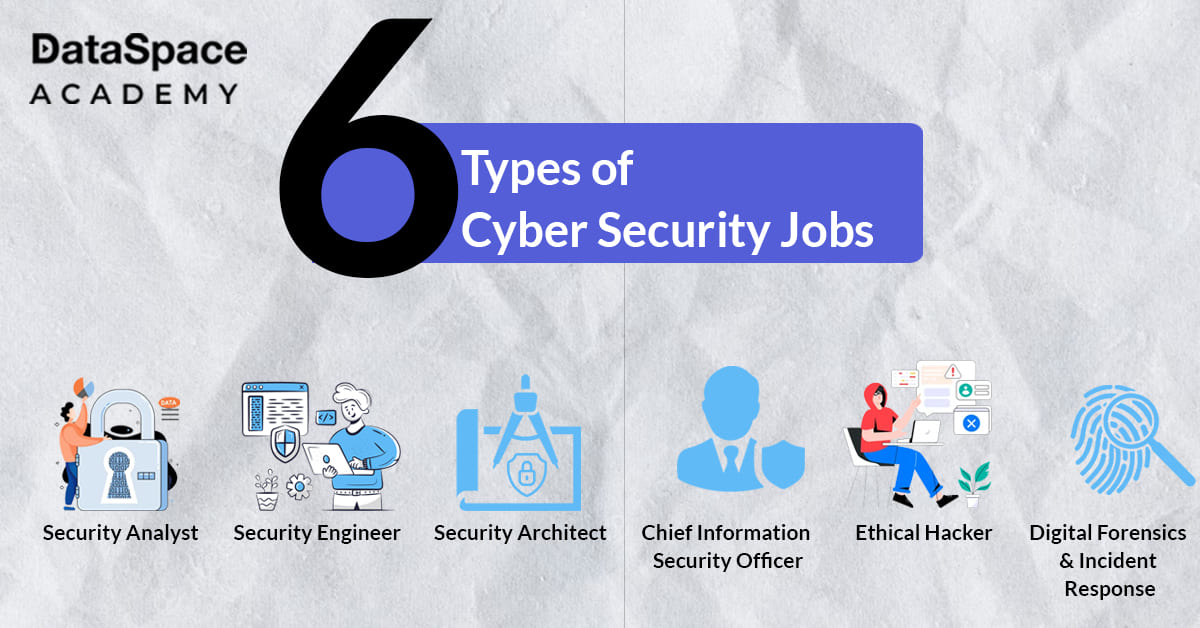Cybersecurity has become crucial for any organisation aiming to secure its digital assets. With the rise in cyber threats, the demand for skilled cybersecurity professionals has skyrocketed in recent years. Cybersecurity jobs also promise high pay packages and great job security. The surge in demand for cybersecurity experts has further inspired several professionals in computer networking to switch to the cyber security field.
In this blog, we are about to explore the career transition from computer networking to cybersecurity. We will discuss the key differences between the two fields, the skills required to make the switch, and the steps one can take to enter the cybersecurity industry. Whether you are a seasoned networking professional or just starting your career in IT, this will provide you with valuable insights to help you make a successful career transition to the exciting world of cybersecurity.

There is not one but multiple reasons to transition to the field of cybersecurity. Cybersecurity is a growing and on-demand industry The cybersecurity job sector is predicted to have around 3.5 million openings by 2025 (https://www.forbes.com/) The cybersecurity world offers a long list of job roles and opportunities, such as Cybersecurity Engineer, Penetration Testing Security Engineer, Security Architect, Cybersecurity Analyst, Network Security Manager, and more The cybersecurity salary could reach up to 24 LPA INR Cybersecurity professionals have openings in a wide range of industries; added to tech, you will also find job openings in healthcare, military, automobile, logistics, finance, and so on.
Computer networking and cybersecurity do share some similarities, but they are not the same. While computer networking focuses on building and maintaining communication networks, cybersecurity deals with protecting these networks from unauthorised access, cyberattacks, and data breaches. Despite the differences, the knowledge and skills gained in computer networking can provide a strong foundation for a successful career transition to cybersecurity.

Transitioning from networking to cybersecurity can open up various job opportunities in the field.
For someone with an IT or computer science background, it will need less time to acquire the necessary skills and knowledge. Generally, anyone entering the cybersecurity domain should start with entry-level certifications, such as CompTIA Security+ or Certified Ethical Hacker (CEH). Once completed, they can switch to more advanced specialities.
Transitioning from the networking to cybersecurity domain requires acquiring a specific set of skills and knowledge. While networking experience can provide a solid foundation, there are several additional skills you need to develop to be successful in cybersecurity.
Compared to other domains, individuals with a background in computer networking have a distinct advantage while transitioning into cybersecurity. They possess a strong understanding of programming and software design, combined with a foundational knowledge of security principles. This unique combination of skills enables them to effectively identify and address vulnerabilities in networks and applications, thus ensuring optimal system safety. With appropriate training and upskilling from
DataSpace Academy, these professionals can actively contribute to bolstering the security of networks and applications. By leveraging their expertise in programming, software development, and security principles, they can effectively mitigate risks and safeguard systems from cyber threats.

Ans: Yes, Computer networking and cybersecurity are different fields. Both domains do share some similarities, but they are not the same. While computer networking deals with building and maintaining communication networks, cybersecurity works with protecting these networks from unauthorised access, cyberattacks, and data breaches.
Ans: Important skills for building a cybersecurity career include Risk Assessment, Digital Forensics, and Penetration Testing.
Ans: For transitioning to cyber security from computer networking, you can start with the cybersecurity essentials program and then shift to cyber forensics or pen testing courses.
Ans: The most common job roles in the field of cybersecurity include Cybersecurity analyst, Penetration Tester, and Cybersecurity Engineer.

 Transitioning from networking to cybersecurity can open up various job opportunities in the field.
Transitioning from networking to cybersecurity can open up various job opportunities in the field.
